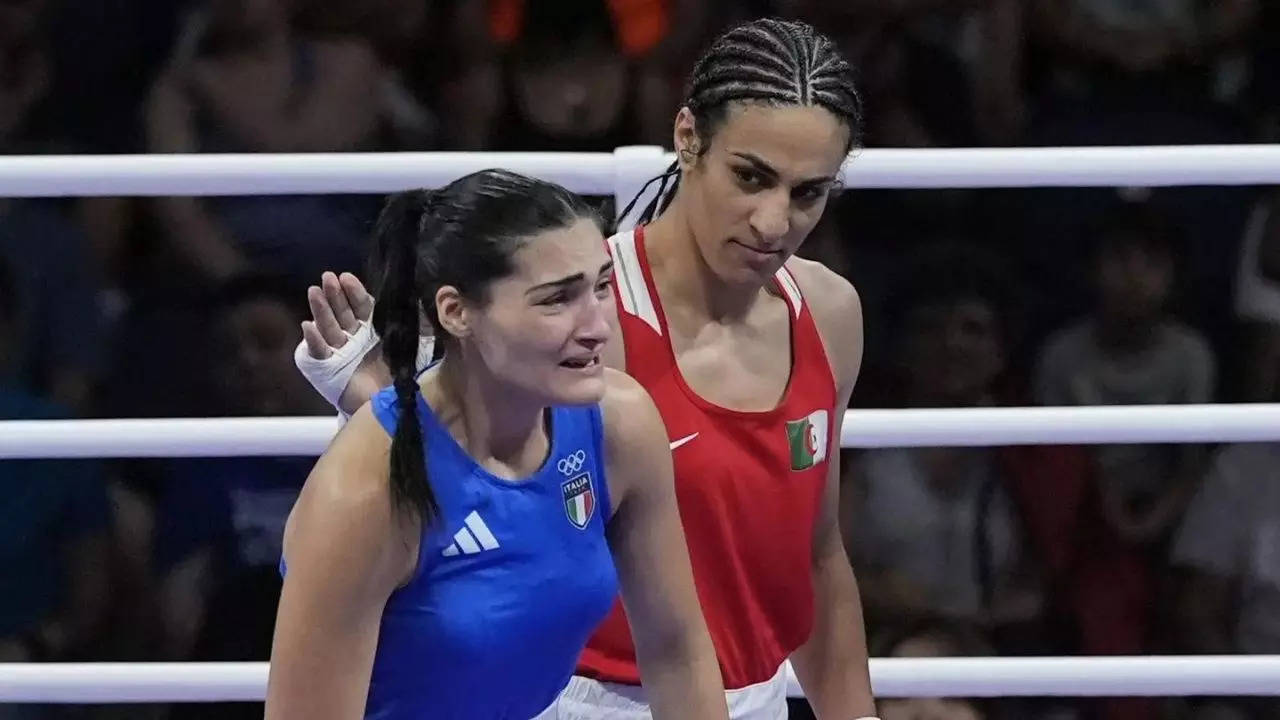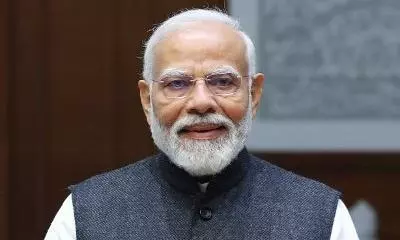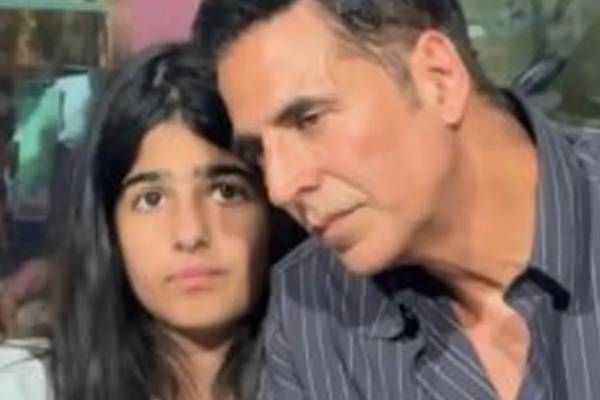The Algerian boxerwho had been reinstated for the Games despite a previous disqualification from the 2023 World Championships due to a failed gender eligibility test, found herself at the centre of a storm before she even stepped into the ring.
In her opening bout, Khelif faced Italy’s Angela Carinia seasoned fighter with high expectations.
However, the match ended abruptly after just 46 seconds, a rare occurrence in Olympic boxing.
Carini, visibly distraught and bleeding from her nose, cited intense pain from the initial exchanges as the reason for her sudden withdrawal.
She vehemently denied any political motivation behind her decision, saying, “If an athlete is this way, and in that sense it’s not right or it is right, it’s not up to me to decide. I just did my job as a boxer. I got into the ring and fought. I did it with my head held high and with a broken heart for not having finished the last kilometre.”
Yet, the tension was palpable when Carini refused to shake Khelif’s hand after the fight.
Watch:
Carini’s refusal to engage in the customary post-fight handshake was seen by many as a silent protest, though she insisted it was merely a result of her physical distress. The incident, however, intensified the scrutiny on Khelif’s presence at the Games.
Khelif is not a transgender athlete.
She was born female but has a disorder of sex development (DSD) that results in XY chromosomes and testosterone levels similar to those of male athletes.
The IOC’s Framework on Fairness, Inclusion, and Non-discrimination based on gender identity and sex variations provides guidelines for sports federations to promote inclusion and fairness, particularly for athletes with Differences of Sexual Development (DSD).
DSD encompasses a group of rare conditions that affect genes, hormones, and reproductive organs.
Individuals with DSDs may be raised as female but possess XY chromosomes and testosterone levels typically found in males.
Despite the controversy, Khelif, a silver medalist at the 2022 IBA World Championships, remains undeterred in her Olympic aspirations.
Her next challenge is a quarterfinal bout against Hungarian trailblazer Anna Luca Hamori, a match that holds significant weight. A victory would not only secure Khelif an Olympic medal but also potentially reignite the ethical and sporting debates surrounding her eligibility.







